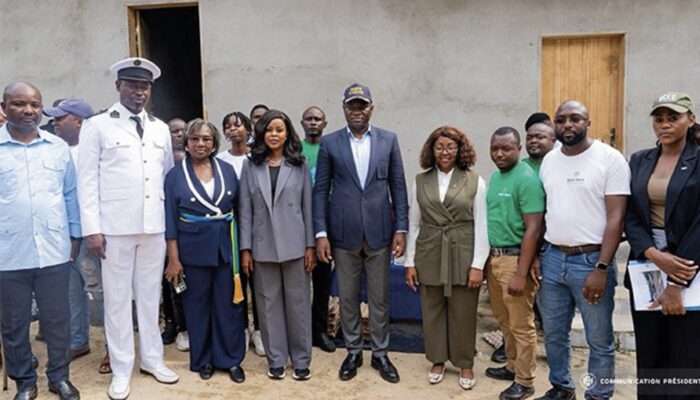The Gabonese Minister in charge of Vocational Training, Madeleine Berre, signed on June 15 in Libreville, in the presence of his colleagues from Commerce and National Education, the first framework agreement of public-private partnership with employers and the sector private. This agreement will improve the employability and integration of young people.
The Skills and Employability Development Project (Prodece) is entering its implementation phase. On June 15 in Libreville, the Minister in charge of Vocational Training Madeleine Berre, signed with the private sector, the Chamber of Commerce, the World Bank and his colleagues in Commerce and National Education, the first framework agreement of private-public partnership.
This agreement will “improve the employability and integration of young people whose training is delivered within vocational training establishments and the search for lasting funding for the operation and development of these establishments,” Madeleine Berre explained.
The particularity of this agreement is that it promotes a new model of governance for establishments. This is all the more so as it will “increase the autonomy of technical and professional training establishments with strong involvement of the private sector in public-private co-management of these establishments,” Madeleine Berre stressed.
For the experimental phase, training will take place at the Training Center of Excellence, the sectoral construction/woodworking centre and the ICT sector centre located in the Special Economic Zone of Nkok before gradually spreading to all establishments. of technical and professional training in Gabon.
Launched in 2018, the Prodece is an initiative of the government-funded by the World Bank as part of a program to improve the effectiveness of vocational training, skills development and employability of young people aged 16 to 34 years old.
It revolves around three components: extension of the training offer in the growth sector of the Gabonese economy, the program to develop the employability of young people and the strengthening of institutional capacities which are capable of executing the various systems created at the level of the National Employment Office One and the National Investment Promotion Agency (ANPI).






